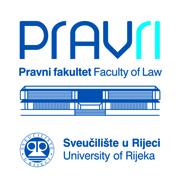PROXY SOLICITATION AS A METHOD OF OBTAINING VOTING CONTROL AT THE GENERAL MEETING
OPEN QUESTIONS
DOI:
https://doi.org/10.30925/zpfsr.38.1.8Keywords:
proxy solicitation; proxy contest; proxy voting; Proxy; shareholders’ meeting; voting Rights; Shareholders’ Rights DirectiveAbstract
In the article the author analyzes the proxy solicitation as a method for acquiring
voting control in a company pointing out to the open issues in its application. Since
the Shareholders’ Rights Directive does not explicitly regulate the proxy solicitation,
it is left to the discretion of each EU Member State legislator. There are two groups
of Member States in regards to this matter – Member States that do not regulate the
proxy solicitation process and those that have adopted specifi c provisions regulating
proxy solicitation. However, it should be noted that, even within the second group
of Member States, approaches to regulating specifi c issues in the proxy solicitation
adopted by the national legislators vary. Furthermore, Member States without specifi c
provisions are now questioning the actual necessity for their implementation. In the
conclusion, the author proposes solutions to be adopted in Croatian law in this respect.
Additional Files
Published
How to Cite
Issue
Section
License
Collected Papers is an open access journal. Journal does not charge article processing charges (APC) to authors. It is licensed under CC BY-NC licence 4.0.
Collected Papers of the Law Faculty of the University of Rijeka" is an Open Access journal. Users are allowed to read, download, copy, redistribute, print, search and link to material, and alter, transform, or build upon the material, or use them for any other lawful purpose as long as they attribute the source in an appropriate manner according to the CC BY licence.
The papers published in "Collected Papers of the Law Faculty of the University of Rijeka" can be deposited and self-archived in the institutional and thematic repositories providing the link to the journal's web pages and HRČAK.
Upon acceptance of the manuscript for publication by this journal, the author can publish same manuscript in other journals only with the permission of the Editorial Board (secondary publication). A repeated publication should contain a notice as to where the manuscript was originally published.



